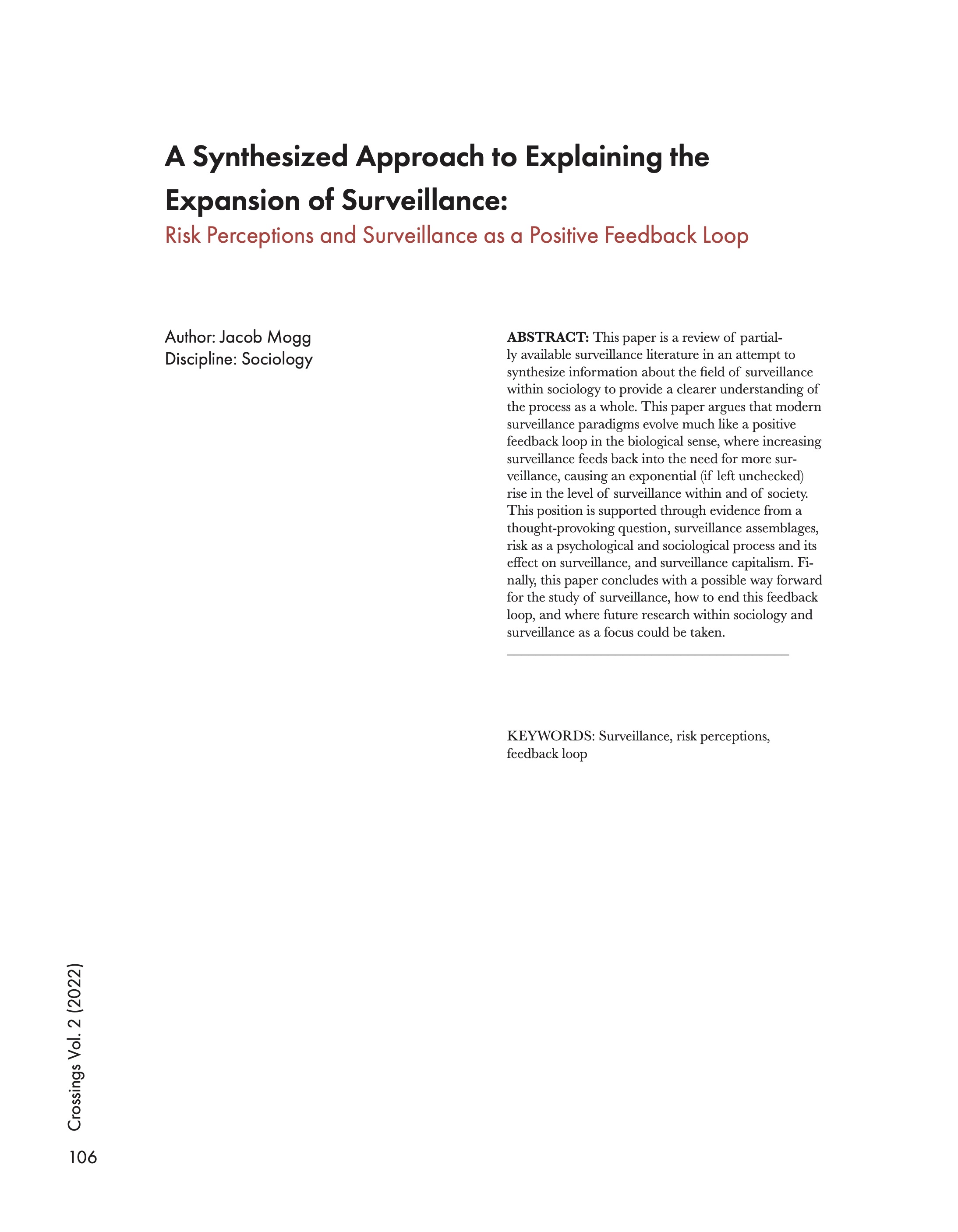A Synthesized Approach to Explaining the Expansion of Surveillance: Risk Perceptions and Surveillance as a Positive Feedback Loop
DOI:
https://doi.org/10.29173/crossings52Keywords:
surveillance, sociology, risk perceptions, social scienceAbstract
This paper is a review of partially available surveillance literature which attempts to synthesize information about the field of surveillance within sociology. It will provide a clearer understanding of the expansion of surveillance. This paper argues that modern surveillance paradigms evolve much like a positive feedback loop in the biological sense, where increasing surveillance feeds back into the need for more surveillance, causing (if left unchecked) an exponential rise in the level of surveillance within society. This position is supported through evidence from a thought-provoking philosophical anecdote, surveillance assemblages, risk as a psychological and sociological process and its effect on surveillance, surveillance capitalism, and national security and its role in this expansion. Finally, this paper concludes with a possible recommendation for dealing with surveillance going forward, how to end the feedback loop, and shows where future research within sociology and surveillance as a focus could be taken.

Downloads
Published
Issue
Section
License
Copyright (c) 2022 Jacob Mogg

This work is licensed under a Creative Commons Attribution 4.0 International License.

